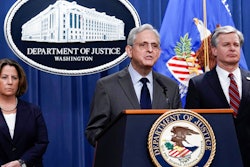SHANGHAI, China (AP) - The U.S. government needs to revamp its export controls program or risk losing its competitiveness for a wide range of products in major markets like China, U.S. business groups said Tuesday.
Members of the American Chamber of Commerce in Shanghai and its sister group in Beijing said they recently traveled to Washington to lobby U.S. officials and lawmakers on trade issues, including the need to more tightly focus controls on products with military applications to avoid losing business to rival companies facing fewer restrictions.
The groups also were seeking faster processing of visas and support for efforts in fighting rampant counterfeiting that costs foreign businesses billions of dollars in lost revenue each year.
Security concerns, especially since 9-11 has hurt U.S. competitiveness in myriad ways, the businessmen said.
Aircraft manufacturers cannot bring Chinese pilots into the U.S. for training - obliging them to set up training centers elsewhere - because most pilots have military experience, they said.
Businesses also have trouble getting visas to bring potential customers to the U.S., said Dean Ho, a member of the Shanghai group's board of governors.
''Since 9-11, that has been an increasingly difficult process,'' he said.
U.S. export controls aimed at preventing transfer of sensitive technology to China's army are too broad, putting many items that have no specific military applications off-limits, said Edward Gwinn, managing director of De Global Ltd., a consulting company.
''Many peripheral products get caught up in export controls and can't be sold,'' said Gwinn, urging that such restrictions be made more specific.
''Small items of no military significance at all get caught up in the process,'' he said.
He cited the example pistons and camshafts in engines sold for military vehicles. Under U.S. law, all the engine parts are restricted for export, though they have no specific military purpose.
The issue of export controls is contentious for both sides.
Chinese officials complain that the restrictions are an unfair trade barrier, hindering China's access to advanced civilian technology and contributing to Beijing's ballooning trade surplus with the United States, which hit a record $202 billion last year.
Although calculating the amount of business lost due to the restrictions is nearly impossible, the dollar value of applications for such exports is under $1 billion, suggesting that they are not a major factor in the overall trade balance, said Jeffrey Bernstein, chairman of the Chamber of Commerce in Shanghai.
But American businesses do face a competitive disadvantage, one made worse by the slowness of the process for approving exports affected by the restrictions, he said.
''The loss in export sales does not bring about a corresponding gain in America's security because the technology that U.S. exporters cannot bring into China is being brought in by other trading nations, most often by one of America's allies,'' the group said in a statement.
''It is critical that U.S. export controls are kept up to date, restricting only technologies that truly pose a threat to U.S. defense.''





















